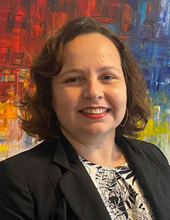
Challenges and potentials to implement the Brazilian Common Core Curriculum: the case of Maranhão
Brazil has approved a common core curriculum (BNCC) for basic education. States and municipalities are legally required to design their own curricula, considering the national document. The state of Maranhão has designed its document in 2019 (Curricular Document of the Maranhense Territory for Early Childhood Education), and the municipalities of the region of Guarás, located on the western coast of Maranhão, have designed theirs in 2021 (Integrated Curricular Document of the Guarás Region for Early Childhood Education). In this research I intend to investigate what are the challenges and potentials for the implementation of BNCC for early childhood education in Maranhão, both in the state and in the municipality’s levels. To address this issue, I am conducting a qualitative research based on interviews with 15 professionals involved in these documents’ elaboration, and on document analysis of both. Since many municipalities in Brazil are still in the process of preparing their curricula, the answer to this question has the potential to help them in their own processes.
Jaana Flávia Fernandes Nogueira, Visiting Scholar
Bachelor of Arts in Pedagogy from the State University of Ceará (UECE), specialist in Public Management from the Brazilian National School of Public Administration (ENAP), Master in Education from the University of Brasília (UnB) and PhD in Education from the University of California at Los Angeles (UCLA) . She works as coordinator at the Center for the Development of Public Management and Educational Policies (FGV DGPE) and as a professor at the Brazilian School of Public and Business Administration (FGV EBAPE), at Fundação Getulio Vargas. Previously she worked at the Brazilian Ministry of Education (MEC); at the Brazilian National Fund for the Development of Education (FNDE); and at the Ceará's State Education Secretariat (SEDUC-CE).

